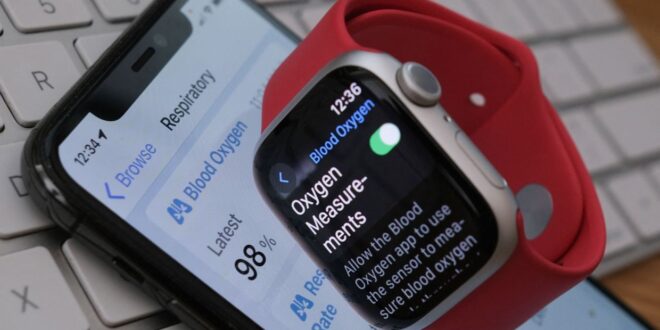Apple Inc is planning to remove its blood-oxygen feature from its latest smartwatches – the Series 9 and Ultra 2 – to get around a US ban of the devices if an appeal of the decision fails.
The plan was disclosed Monday by Masimo Corp, which has been locked in a feud with Apple over patents related to the technology. It said that US Customs and Border Protection approved the move on Jan 12.
The agency “decided that Apple’s redesign falls outside the scope” of an import ban by the US International Trade Commission, signaling that the adjustment will let Apple keep its watches on the market.
The ITC had ruled in October that Apple’s devices violated Masimo patents related to blood-oxygen measurement. That led Apple to pause sales of the smartwatches just ahead of Christmas, though an interim stay allowed the company to bring the products back late last month.
The iPhone maker developed a software workaround intended to sidestep the dispute and presented the solution last week to the customs agency, which is in charge of enforcing import bans. Apple explained that the redesigned watches “definitively” do not contain the technology at issue, known as pulse oximetry, according to Masimo.
The dramatic step would probably only take place if Apple fails to win a longer stay from a federal appeals court. The company said Monday it expects the US Court of Appeals for the Federal Circuit to rule on its motion for a stay for the entire appeal period as early as Tuesday. The company said it believes the period could last a year or more.
Until then, the Apple Watch blood-oxygen feature continues to be available on newly sold units, the Cupertino, California-based company said. The customs agency hasn’t publicly published its decision, but shared it with the parties.
“Apple’s claim that its redesigned watch does not contain pulse oximetry is a positive step toward accountability,” Masimo said. “It is especially important that one of the world’s largest and most powerful companies respects the intellectual property rights of smaller companies and complies with ITC orders when it is caught infringing.”
Removing the technology from the Apple Watch would be significant move. The company’s engineers have been working on a software update that changes the blood-oxygen app and its algorithms in a way that might circumvent the issue without losing the feature. But eliminating the capability would likely be the quickest way to avoid seeing the ban reimposed, which could have occurred as early as this month.
“Apple may have paid a steep price to get around a US import ban,” Bloomberg Intelligence analyst Tamlin Bason said in a note. “That was a highly touted feature.”
Though addressing the immediate risk of a ban is positive, the move “could dent customer demand,” Bason said.
Apple’s operations team has already begun shipping modified Series 9 and Ultra 2 watches to retail locations in the US, likely in case the appeal fails this week. The stores were told not to open or sell the tweaked devices until they receive approval from Apple’s corporate offices. It’s possible that those models are the new versions without the blood-oxygen feature.
Separately, a federal appeals court is expected to hear an Apple motion as early as this week for a continued stay on the ban. The prohibition was overturned on an emergency basis while Apple waits for a hearing. Last week, the ITC urged an appeals court to reject “weak and unconvincing” arguments supporting a bid to block the trade agency’s enforcement of the ban. – Bloomberg
 BeritaKini.biz Berita Viral Terkini di Malaysia
BeritaKini.biz Berita Viral Terkini di Malaysia





